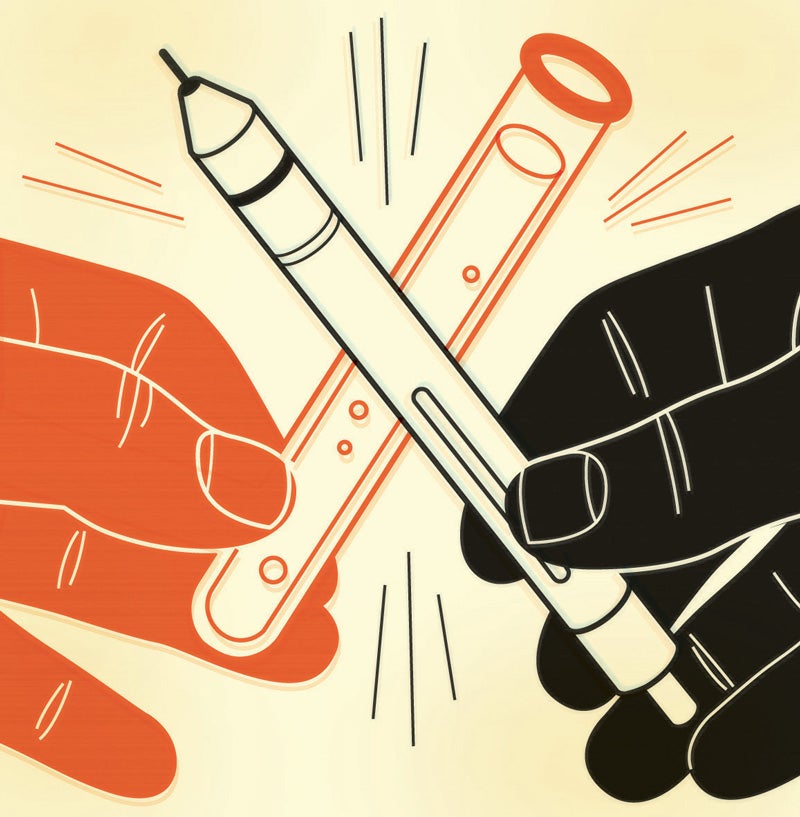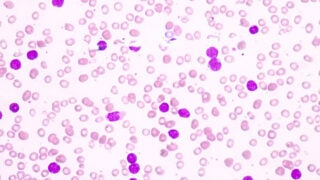5 Ways USC and UCLA Researchers Joined Forces for Your Health
In labs and clinics across Los Angeles, Trojan and Bruin researchers partner to help Americans live longer and better.
The crosstown rivalry between USC and UCLA is the stuff of college sports legend. But off the field, Los Angeles’ two preeminent universities have a long history of working together to boost health in Southern California and beyond. As we head toward the upcoming football matchup between USC and UCLA on Dec. 12, read on to learn how researchers at the institutions collaborate in the name of medicine.
Bone Health
Doctors commonly prescribe certain drugs to slow down bone loss, or osteoporosis, and prevent fractures. Bone cancer patients also often take them. But these medicines, called bisphosphonates, sometimes cause a rare but painful side effect: death of the jawbone.
USC and UCLA health researchers recently discovered a way to prevent that damage. Their technique would keep the drugs away from the jawbone, but patients could still reap the benefits of the medicine in other other parts of the body. The treatment strategy is still in development, but when it reaches the clinic, the researchers hope it encourages more patients to use bisphosphonates to treat their osteoporosis or cancer.
Stroke
Stroke is among the leading causes of death in Los Angeles County and across the nation. Doctors and other health experts from USC, UCLA and the University of California, Irvine joined forces to accelerate new stroke therapies and potentially save lives.
The three academic medical institutions lead a consortium of 49 health centers across L.A. and Orange counties. Supported by the National Institute of Neurological Disorders and Stroke, the network advances clinical trials of promising treatments, preventive strategies and rehab for stroke. Besides educating medical students and new doctors, the network also aims to improve care and support for underserved groups affected by stroke, like low-income patients and people of color.
Both Los Angeles County+USC Medical Center and Keck Hospital of USC participate in the program.
Autism and Belly Troubles
Parents with children on the autism spectrum share a common challenge: Their kids often struggle with stomach pain, cramps and other gastrointestinal problems.
USC and UCLA health researchers think they know why. They suspect that autism could be linked to an out-of-sync gut microbiome — the complex mix of tiny bacterial organisms that live in the stomach and intestines. A federal grant supports their investigation into how this bacterial system might affect the behaviors and brains of children with autism.

Race and Health
Racist experiences can have toxic health effects. A team of USC and UCLA health scientists found that for many Black Americans, racial discrimination triggers an inflammatory response in their bodies, increasing their risk of chronic illness.
The study found racism could account for as much as 50% of this heightened inflammation among Blacks in the U.S., which puts them at higher risk of heart attack, metastatic cancer and other health problems.
Preventive Care
Since the COVID-19 pandemic began, hospitals have seen a steep drop in patients seeking treatment for chronic conditions and heart problems. Yet it’s especially important for patients experiencing a heart attack or stroke to seek immediate care for a full recovery.
To reassure patients that it’s safe to visit hospitals for care, Keck Medicine of USC joined with UCLA Health, Cedars-Sinai and other Southern California nonprofit health systems to launch public service announcements on television, radio, newspapers, social media and billboards. These efforts are critical to addressing a fear of COVID-19 as hospitals go to unprecedented lengths to keep patients safe.
The researchers’ stroke collaboration — the Los Angeles – Southern California NINDS Clinical Trials Network — was supported through NIH grant 5U10NS086497-05. Their investigation into links between the gut microbiome and autism is supported by NIH grant 5R01HD079432-05.



